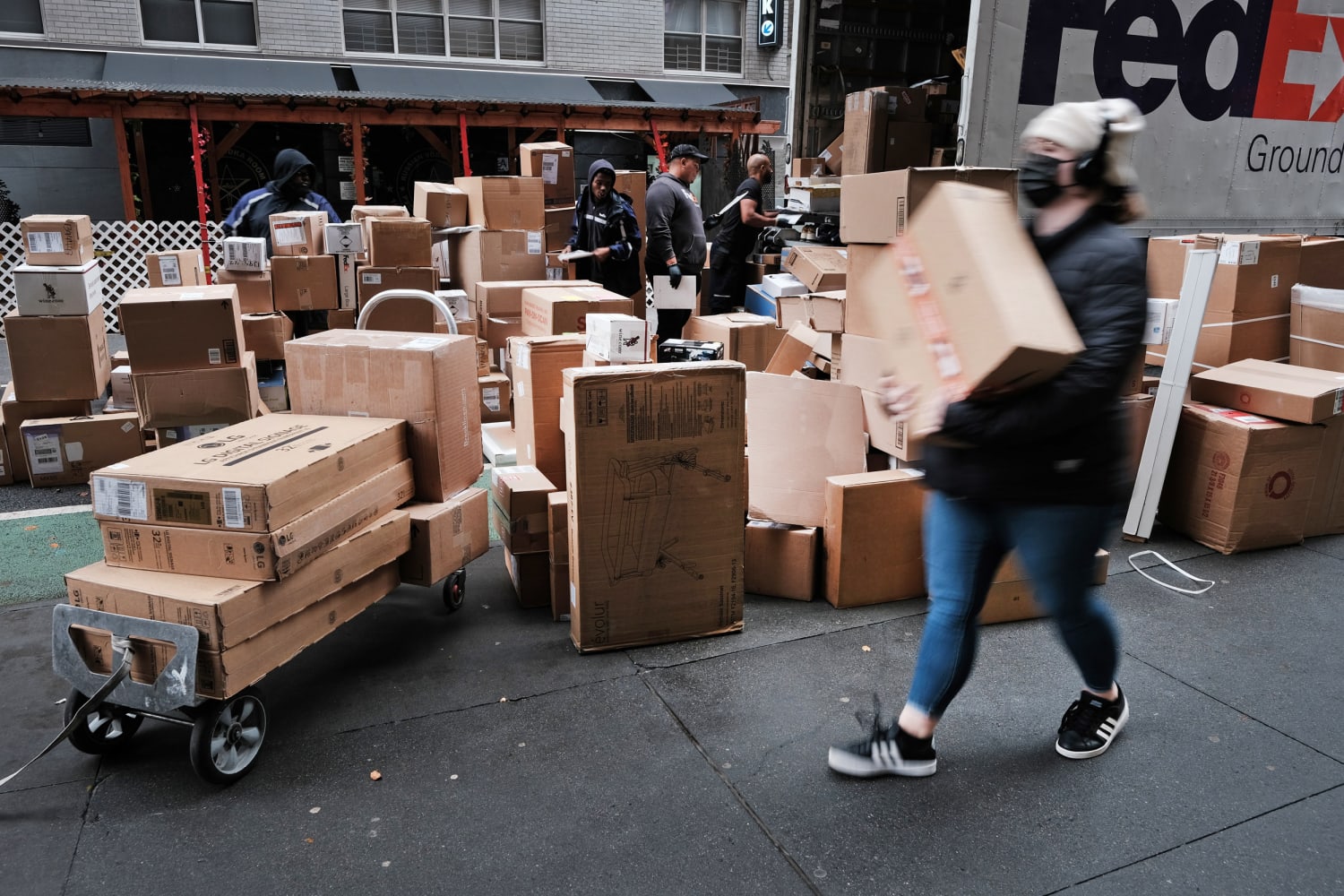
The holiday season is still in full swing, but retailers are already preparing for an influx of returns at the end of the month — and it’s expected to be bigger than years before.
Nearly a year into the pandemic, in-store fitting rooms and makeup testers have become nearly obsolete, leaving shoppers to try on clothes and products at home with plans to return what they don’t want to keep. While this is convenient for shoppers, it poses a booming problem for retailers left to process — or discard — unwanted goods.
“Every year as e-commerce grew, [returns were] becoming a bigger problem,” said Praveen Adhi, lead of retail operations for the Americas with consulting firm McKinsey. “Then in March 2020, there was a giant step change and suddenly retailers had no choice because more people started shopping online and have remained shopping online. It became too much a part of the business to ignore.”
Online shopping sales are expected to reach $207 billion this year, a 10 percent increase from 2020, according to the Adobe Digital Economy Index. But with out-of-stock issues and supply chain constraints, shoppers have been buying whatever they could get their hands on out of fear their gifts wouldn’t arrive in time for the holidays, Sender Shamiss, CEO of the logistics company goTRG, told NBC News in an email.
Between Thanksgiving and the end of January, $120 billion of goods is expected to be returned, according to reverse logistics technology company Optoro. This is up about 4 percent from $115 billion last year, it said.
This year, shoppers are expected to return anywhere between 30 and 40 percent of online purchases.
“The focus on returns has definitely intensified,” said Bill Inzeo, global retail technology strategist at retail technology company Zebra Technologies. “Retailers are looking for ways to lead customers to solutions to help align how they’re thinking about returns.”
Sizing and virtual reality technology, aimed at reducing returns before a shopper makes a purchase, are still nascent when it comes to online shopping. In March, Snap Inc. expanded its e-commerce business with the acquisition of Fit Analytics, a virtual reality company that helps shoppers choose the right size clothing when they shop online. Walmart shut down its virtual reality e-commerce subsidiary last year after just two years. Gap Inc. recently acquired the fit technology company Drapr in August to tackle the problem of returns.
“When we look at our returns, the number one reason why people return product is because it doesn’t fit,” Gap CFO Katrina O’Connell said in a September earnings call. “So, being able to leverage the technology that Drapr brings to be able to create a better fit experience, we think will show up in our return rate.”
But as adoption of these technologies drags along, businesses are working on new ways to tackle bracketing, where shoppers buy a range of sizes or colors of a single product with the intention of returning what they don’t want. It’s a trend industry watchers say has increased as shoppers move online. About 72 percent of shoppers who bought multiple sizes and colors of one item last year plan to increase this strategy, according to a recent report from branded returns company Narvar. About one-third of shoppers told the company they will purchase more of the same item because they can’t try things on in store.
One-third of surveyed shoppers plan to buy more of the same item because they can’t try things on in store.
“The stickiness of trends are staying even after stores reopen because of variant concerns — people got used to the convenience of e-commerce,” said Anisa Kumar, chief customer officer with Narvar. “Shoppers aren’t staying and hanging out [at a store] and 60 percent are buying items and taking it home with intent to return.”
Saks Fifth Avenue, Sephora, Bed Bath & Beyond and Levi’s all use advanced technology to give shoppers more options to make a return through one of their own stores or a partner store that accepts returns on their behalf. Some companies, including Cole Haan, are using boxless returns, where shoppers can return an item to UPS stores without a box, overcoming the cumbersome process of finding or buying packaging to hold the unwanted item. About 10 percent of shoppers choose this option when making a return, according to Narvar.
Some retailers, such as H&M and DSW, are also offering tiered returns policies for loyal members. For H&M loyalty members, the company waives the $5.99 return shipping fee. At DSW, loyalty members are able to make returns within a year of purchase.
“Return costs and shipping costs have gone up,” said Kumar. “You can’t afford to have inventory that is not sellable and takes longer to send back and have to mark it down.”
The problem of online returns has only become more pressing under the supply chain crisis that has thinned out retail shelves, Shamiss said. Before supply chain backups, goTRG resold returns on secondary marketplaces, which could drive up the resale value for the items. Now, however, it is refurbishing returns items to fold back into a retailer’s supply chain to keep up with consumer demand and backfill inventory, he said.
“You need to get those returns back into your inventory base as fast as possible,” Kumar said.
The window to return items has also become wider with the rise of e-commerce. Macy’s spokesperson Sheikina Liverpool told NBC News in an email that most items purchased online or in store as of Oct. 5 will be accepted for return until Jan. 31 to provide additional flexibility for customers shopping throughout the holiday season. Kohl’s holiday return policy lets shoppers return items within 180 days, with the exception of electronics.
Source: | This article originally belongs to Nbcnews.com









